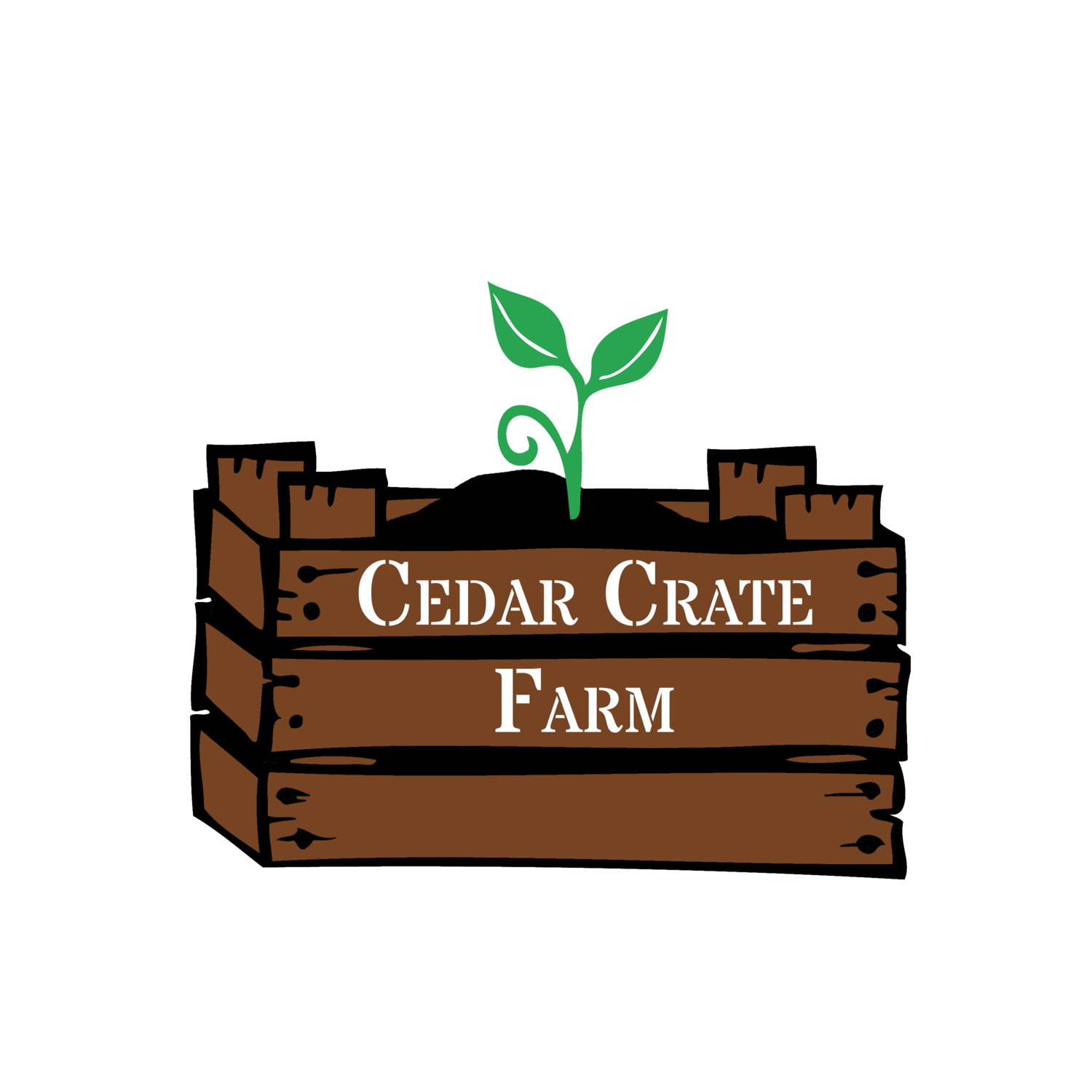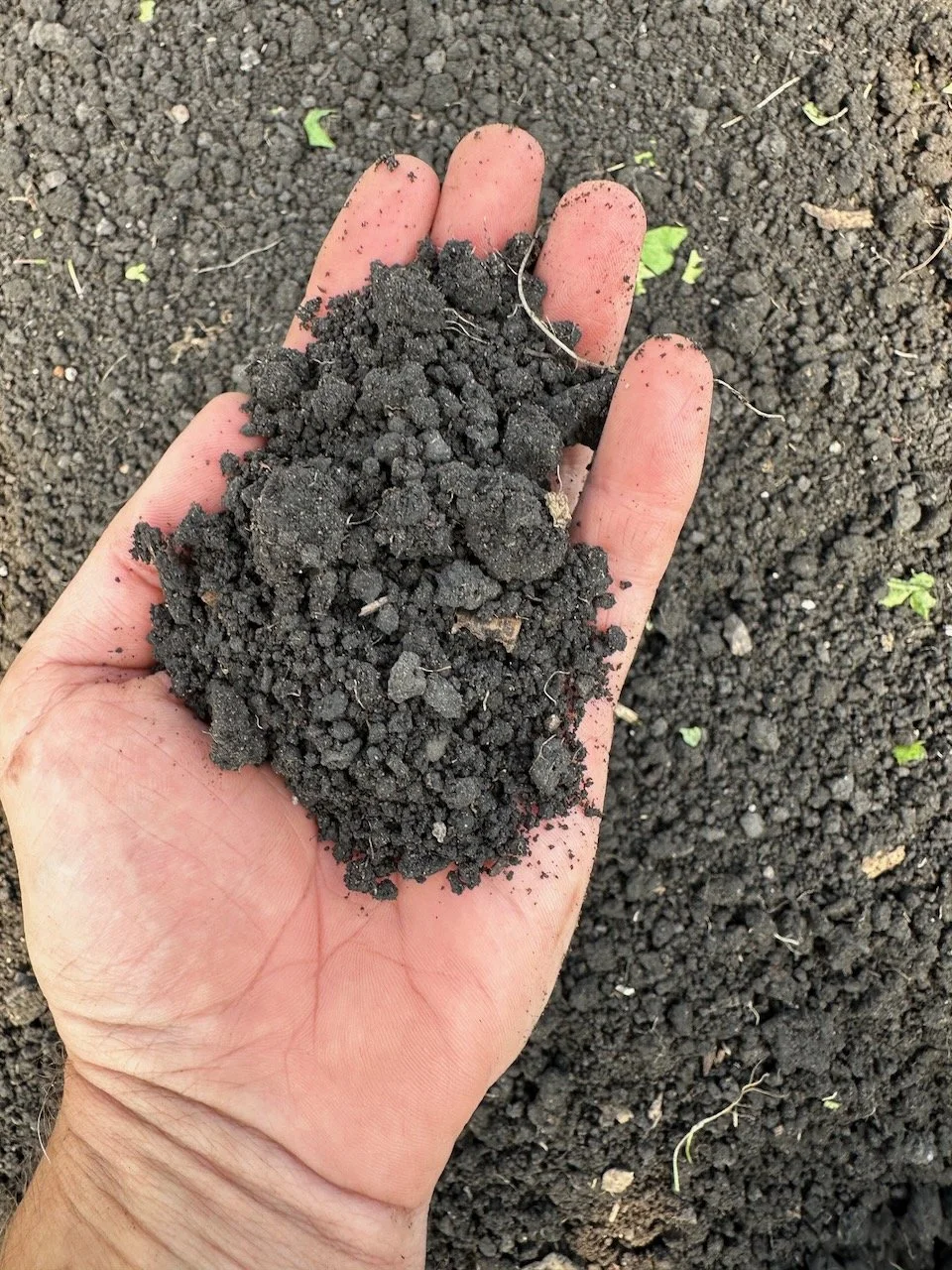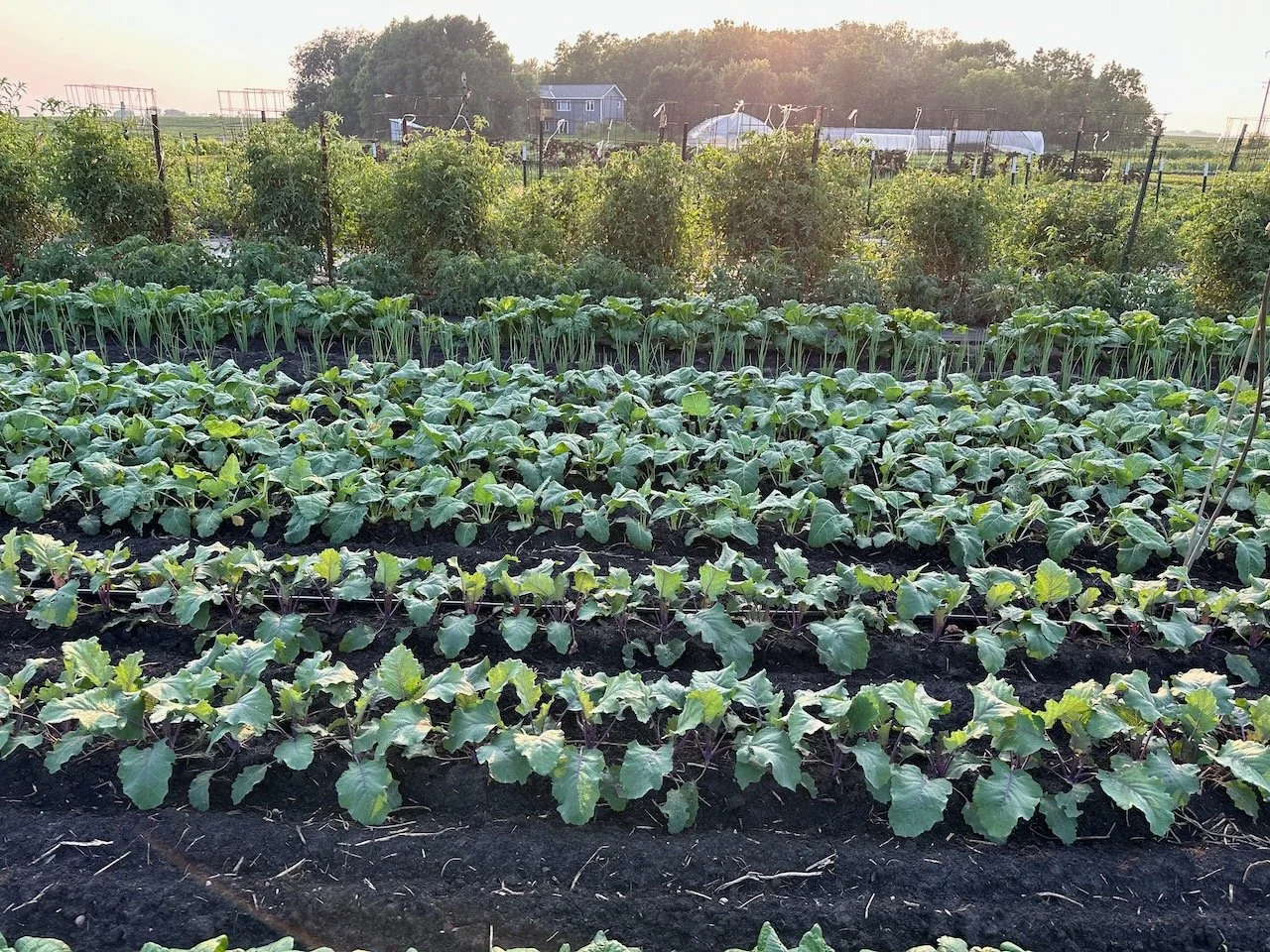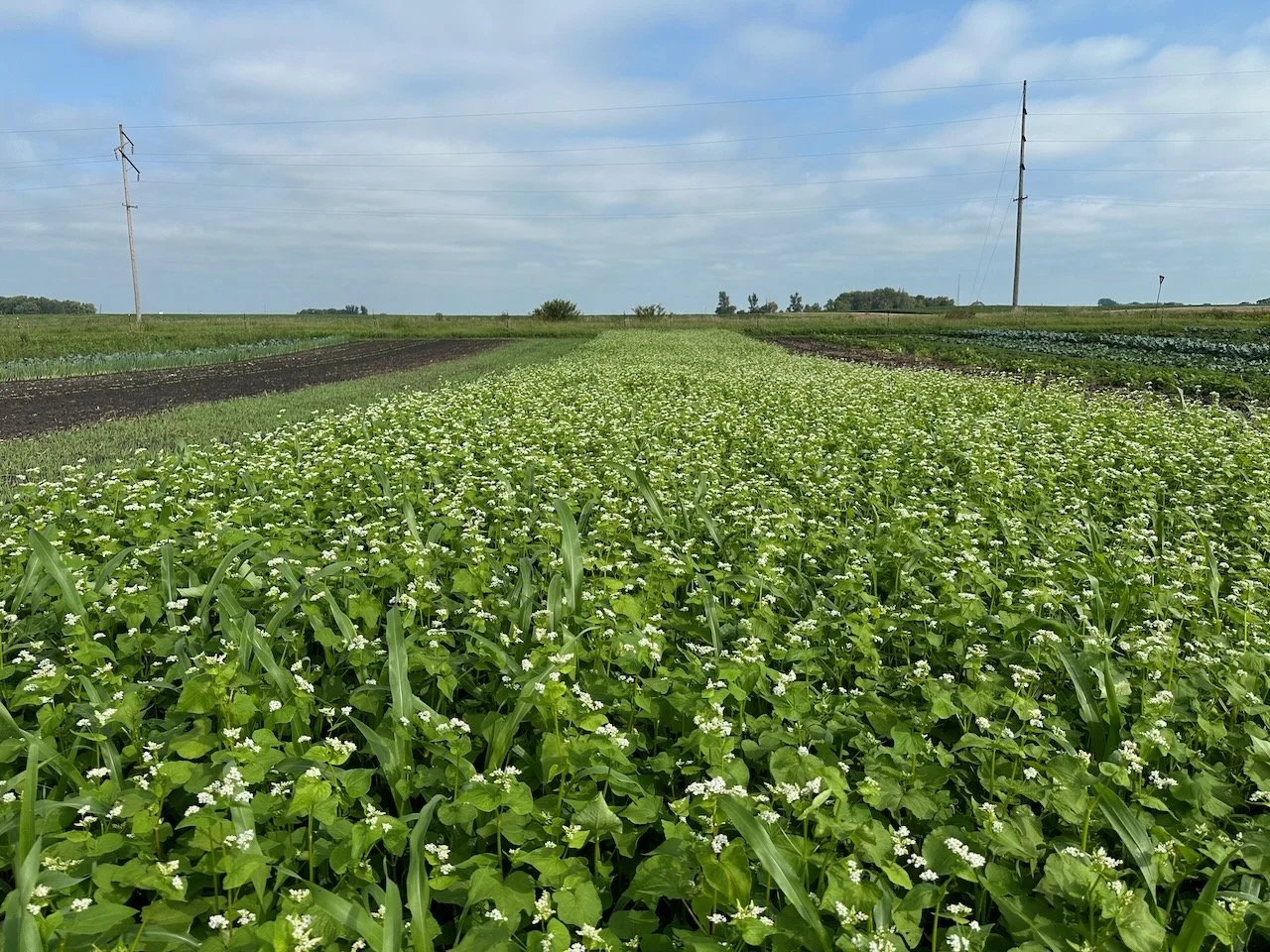Our Sustainable Farming Practices
If you’ve been following and shopping with us for awhile you probably already know that we are deeply committed to sustainable growing practices on our farm. If you’ve just discovered us or are beginning to learn about us and our farm then this blog post is for you! We’ll go over just some of the many ways we use sustainable and organic growing practices on our farm. And we’ll explain why our tag line - Healthy Soil, Healthy Food, Healthy People - succinctly captures the essence of what and why we do what we do on our farm.
For us, sustainable growing practices mean the following things. First, we are trying to improve our soil over time instead of degrading our soil over time. We want the soil for next season to be better than the previous seasons. Second, we don’t use toxic chemicals for weed, disease & pest control on our farm. Finally, we want to grow a wide diversity of crops and cover crops. All of these, tie into our first goal: trying to improve our soil over time. Let’s dig into each of them.
Improving Soil Health
Soil isn’t just a medium to grow something in. It’s a complex living, breathing ecosystem filled with bacteria, fungi, insects and more. In fact, in just a single teaspoon of soil there are billions of living organisms that are responsible for cycling the nutrients that plants need to grow. We want to foster and encourage that ecosystem to thrive because if that ecosystem is off then the quality of our produce goes down.
We improve soil healthy by minimizing tillage as much as possible on our farm. Tillage disrupts and destroys the ecosystem described above and can cause things to get out of balance. While we are not 100% no-till on our farm for a variety of reasons we are very aware of the damage tillage can cause. We also plant diverse cover crop mixes to grow a wide variety of plants that can foster a diverse microbial community in our soil.
A handful of soil with billions of living organisms in it!
No Toxic Chemicals
This is basically a no-brainer. We don’t use toxic chemicals on our crops for insect, weed, or fungus control. These chemicals safety for humans is questionable at best and cancer causing at worst. We er on the side of caution and avoid their use to protect the health and wellness of ourselves, our children, our neighbors, our community as well as our soil and it’s microbial community. C
Crop Diversity
We grow over 90 varieties of produce on our farm each with their own nutrient needs. By rotating through these crops in our fields and tunnels we’re able to more closely approximate nature’s diversity which helps keep our crops healthy, lowers pest pressure, and helps to improve our soil. In addition to crop diversity we also grow diverse cover crop mixes in fallow areas of our farm. These mixes attract beneficial insects, improve our soil by increasing soil organic matter, prevent our soil from eroding from wind or rain and are a joy to observe.
Our diverse vegetable farm. Kohlrabi, cabbage, onions, tomatoes in this photo of one small piece of our farm.
Healthy Soil, Healthy Food, Healthy People
Let’s tie it all together into our tag ling. Healthy soil is the foundation needed to grow healthy plants. Plants need more than just the standard NPK (nitrogen, phosphorus, & potassium) fertilizers sold everywhere. They are complex organisms requiring complex nutrients in order to thrive. It is similar to how humans need more than just fat, carbs, and fiber to thrive. Thus, if you have healthy soil you have a healthy plant which yields healthy food.
There is a growing body of literature that suggests that per unit of mass the fresh produce you find in the supermarket has less nutrients than produce from 50 years ago. Here’s an article for further reading: https://www.scientificamerican.com/article/soil-depletion-and-nutrition-loss/ The reason for this is depleted soil and only replacing NPK instead of thinking of soil as a living, breathing thing. If you have healthier soil then you have healthier produce.
Finally, the typical American diet is generally pretty bad (if you’re reading this blog you probably don’t have a typical American diet.) Worse, even if the typical American is buying fresh produce at the super market it’s just not as good for you (and not as good tasting either) as the produce we’re growing due to the reasons cited above. Eating nutrient dense produce that is nutrient dense because it came from healthy plants which were grown in rich, healthy soil will help you be healthier.
Thus, healthy soil = healthy food = healthy people!
Cover crops on our farm! Buckwheat, millet, peas, sunflowers, sun hemp and soybeans, are all part of this mix!



